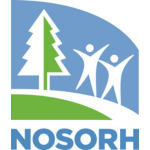ICD-10 became a reality for all providers on October 1, 2015. It is too early to fully assess the impact from the transition. Over the next 6 months, the needs of rural providers will be better understood. If providers in your state still require assistance, look to the North Carolina Office of Rural Health (NCORH) for resources.
NCORH partnered with the NC Community Health Center Association (PCA), the NC Division of Public Health, the NC Association of Local Health Directors and the NC Public Health Association to offer four two-day Regional ICD-10 Education Sessions. These trainings were conducted in rural regions of the state over a five-month period for over 300 participants. Additional one-on-one trainings were conducted for individual clinics. In total, approximately 700 participants were educated on ICD-10.
Tammy Norville, Rural Health Operations Specialist for NCORH, has become a subject matter expert for ICD-10 and conducted the trainings for the office. “This is just the tip of the iceberg,” says Norville. “We plan to offer another round of trainings this Spring.” Norville believes it will take a few months to fully understand the issues with implementation. “One of the most important resources we provide is a live body to answer questions. All of our providers, even those in urban areas, know they can call me to answer questions. I have point of contacts with all the payers to connect providers who have specific billing questions,” continues Norville.
Norville gives credit to CMS for providing numerous resources. “Roadto10.org is an excellent website with additional resources that remains relevant as we go forward.” You can find a crosswalk, 5 quick steps and provider videos. Norville advises that providers “don’t want to read manuals” and suggests becoming familiar with apps available for Android phones and iPhones. Her two favorites are the free versions of supercoder.com and ICD10DOC GD from Precyse University.
If you have any additional questions, contact Tammy for additional information.
